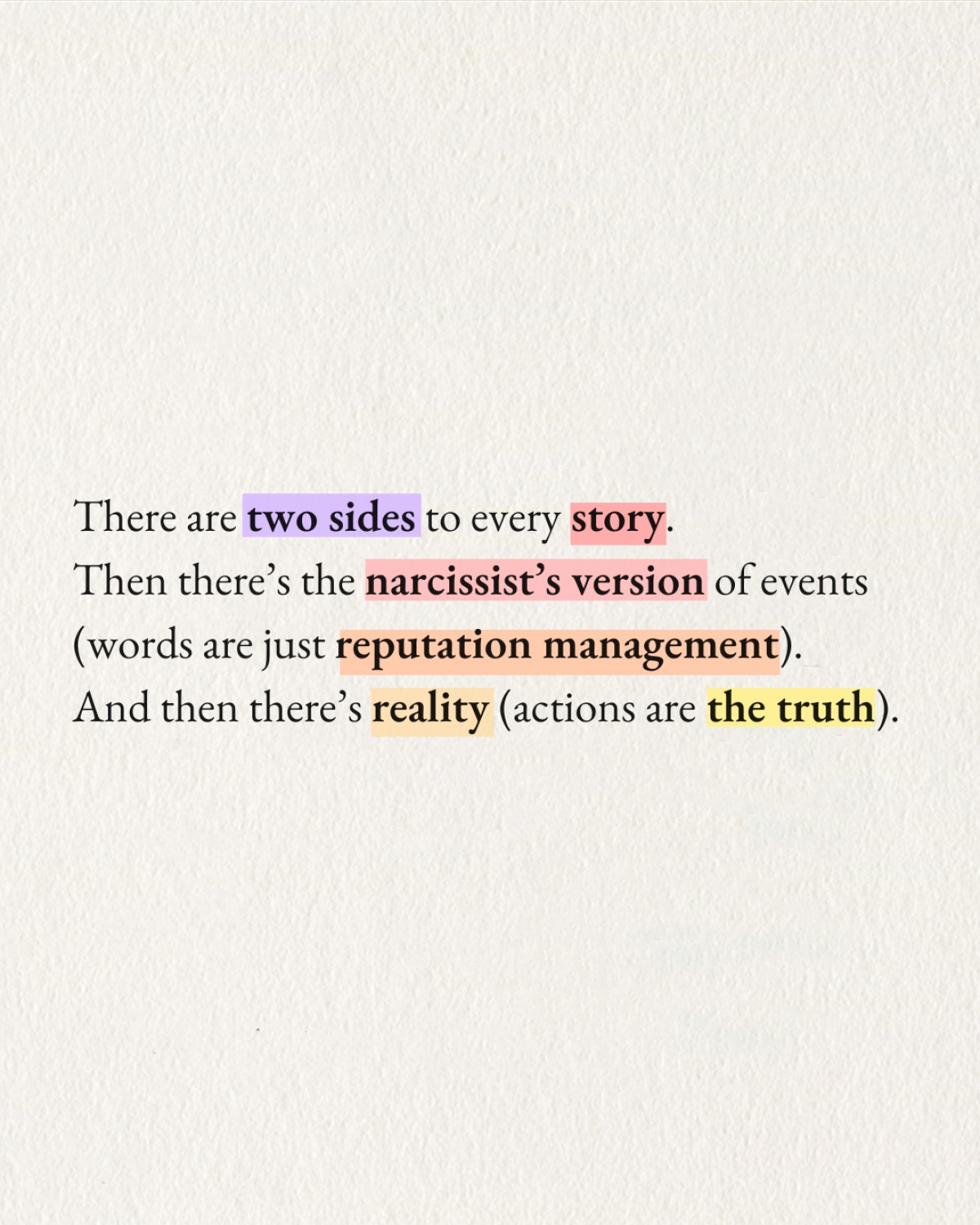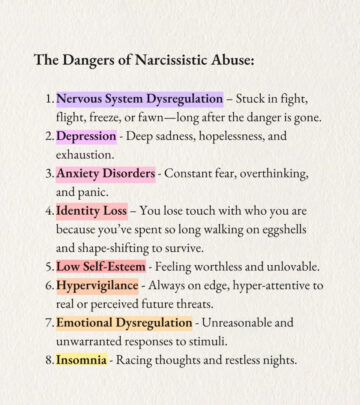Narcissistic Truth Bends: Gaslighting Exposed
Exposing how twisted truths fuel narcissistic control and distort fragile memories now!!!

Image: Instagram
In a world where personal narratives are often rewritten to suit self-serving agendas, the insidious mechanics of narcissistic manipulation have come under renewed scrutiny. A recent post delved into the tactics employed by individuals with narcissistic traits, explaining that when you’re dealing with someone narcissistic, the truth isn’t simply presented—it’s reshaped to serve their image. The post stated, “They don’t just tell their side of the story—they reshape the whole narrative to suit their needs.” This stark reminder challenges anyone who has ever felt gaslighted or misrepresented to reexamine the way reality can be bent in favor of controlling the narrative.
The Narcissist’s Strategy
Narcissists often operate with a meticulously calculated approach, where facts are not mere facts but tools for image management. The post highlights the strategic nature of their behavior: by twisting contextual details, they transform themselves into either the misunderstood hero or the unjustly persecuted victim. This manipulation goes far beyond mere misremembering, as it actively denies accountability. In doing so, these individuals create doubt even among those who once trusted them completely. Such tactics not only undermine genuine conversation but also foster an environment where confusion becomes a weapon.
The narrative in the post clearly articulates that it isn’t about honesty. “It’s about image management,” it asserts, emphasizing a deliberate choice rather than an accidental misstep. When every discussion turns into a battle of interpretations, people close to the narcissist can quickly find themselves isolated, questioning their own memory and judgment. This deliberate reshaping of truth is the essence of gaslighting—a phenomenon that, once recognized, offers the first step toward reclaiming one’s peace and self-identity.
Impact On Mental Health
The manipulation described in the post mirrors the experiences many have shared on social media. For instance, one older Instagram post discussed the mental toll of narcissistic abuse by listing outcomes like chronic emotional trauma, depression, and anxiety. It stated how constant gaslighting can leave individuals feeling detached from their reality and progressively diminish their self-esteem. Such accounts, corroborated by multiple posts, highlight that once a narcissist begins twisting events, the victim is left questioning even their most basic truths.
Brian Comstock, known on Instagram as @brian.comstock, has been among those who recently underscored the disturbing regularity of such behavior. While he did not directly contribute a quote to the initial discussion, his social media presence and previous commentary echo the sentiment that truth, when manipulated, serves only to dodge accountability. Brian’s insights reinforce the idea that this type of manipulation is not accidental but a calculated strategy meant to collect supporters and entrench the abuser’s control.
Reclaiming Your Narrative
As the post describes the debilitating effects of such manipulation—confusion, isolation, and relentless self-doubt—it also serves as a call to action for those ensnared by narcissistic abuse. Recognizing that these twisted narratives are less about truth and more about control is critical. Victims are encouraged to set firm boundaries, a theme echoed in several related Instagram posts. One image, for example, urged individuals to declare that not everyone deserves a second chance. This sentiment is particularly resonant when contrasted with gaslighting tactics where the abuser’s narrative muddies the waters of accountability.
The key, experts suggest, is to detach from the emotional minefield. Another post, which warned that the true response to disrespect is not a heated comeback but rather a decisive exit, encapsulates the modern advice: protect your peace by disengaging from manipulative interactions. These digital messages serve as a form of public validation for those struggling with such abuse and provide practical guidance to reclaim one’s truth.
With a growing awareness about narcissistic abuse, professionals and survivors alike are rallying against the normalization of such behavior. The call is simple—recognize the signs, trust your experience, and seek safe spaces where your truth isn’t just acknowledged but validated. While the tactics remain as old as manipulation itself, modern digital platforms have given voice to those who once felt alone in their struggles.
In many ways, the recent discourse—amplified by both personal testimony and broader social awareness—challenges the longstanding silence around this contentious issue. As more individuals speak out, society steadily shifts toward a culture where self-respect trumps the need to justify or excuse harmful behavior. Reclaiming personal narratives begins by acknowledging that manipulated memories and gaslighting are not markers of one’s failure, but symptoms of an abuser’s intent to control.
These conversations are vital not only for survivors but also for communities at large. As the digital age continues to alter how we communicate and validate experiences, the need for clarity and accountability has never been more critical. Ultimately, understanding the mechanics of narcissistic manipulation can empower individuals to break free from toxic cycles and rebuild a reality that honors their true experiences.
Read full bio of Nisha Bharatan



















